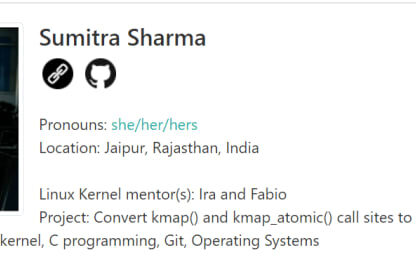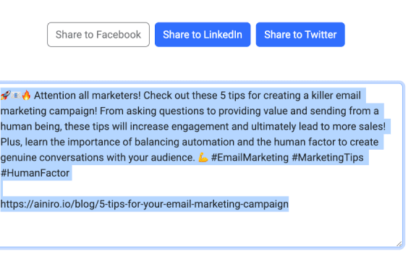Remote work is morally wrong
In a recent CNBC interview, Elon Musk once again threw a controversial point about working from home:
The laptop class living in la la land, okay. But as I said, you can’t but look at the cars are people working from home here, of course not. So people were building cars, servicing the cars, building houses, fixing houses, making food making all the things that people consume. It’s messed up to assume that yes they have to go to work but you don’t. I think it’s morally wrong.
While I share admiration for Musk’s vision, attitude, and execution, there is one statement of his that I find difficult to grasp logically. It is akin to saying that: if people were building cars, building a house, marking food, couldn’t be able to drive a Tesla, but you can, that’s morally wrong. I am open to hearing an alternative interpretation if you can offer a different perspective.
I actually agree with what the interviewer David said: It is a productivity rather than a moral issue. Additionally, even from a productivity standpoint alone, I think it’s very much a double-edged sword, as Musk himself mentioned twice in the whole interview :
- Regarding his own trait of being pathologically optimistic.
- Regarding the potential impact of AI on humanity.
As an engineer, we are supposed to be accustomed to thinking to use this double-edged mindset. While Must is clearly fond of the office, I would like to show the other edge myself.
Love office, in defense of working from home
During my time working at Microsoft around 2010, there existed a highly flexible policy regarding remote work. Whenever individuals needed to work from home, a simple email with the subject line “xxx WFH today” was all that was required to inform the team. WFH is probably the most memorable abbreviation for me in my Microsoft career, indicating how frequently it happened. 😄
However, I almost never send that email. Not only because I think it’s more productive, but also because I love to communicate with people face-to-face, particularly with smart guys who share similar objectives. I even make it a habit to visit the office on weekends, hoping to connect with colleagues during those times. I guess from this perspective, I’m the same as Musk. But the difference is that I do appreciate the benefit of Working from home, which I have observed among my colleagues:
- The most common scenario is when individuals have tasks or obligations near their homes during the day. By working from home, they save the additional time that would have been spent on commuting, especially when faced with traffic jams.
- Another case arises when people are not feeling well. If they were unable to work from home, they would likely need to take sick leave instead.
- There are also instances where individuals need to focus intensely on a task without unexpected interruptions from the office, and working alone at home allows them to achieve that level of concentration.
After passively working from home for a very long time during the pandemic time, I’m even more convinced that I will never choose to work from home if I have the option to go to the office. However, I will always advocate for the freedom and flexibility of working from home as an option for others.
You see my point of view. Let’s see another edge of mine. 😄
Never getting back, in defense of the office
David Heinemeier Hansson, also known as DHH, may not be a familiar name to you, but it’s highly likely that you have come across either the product or the framework he created: Basecamp and Ruby on Rails.
If you have read his renowned books Rework or Remote, you would be aware of how distinctive his company 37signals is. For instance, they have never sought external funding, and they have operated as a remote company for over 20 years. Just as the company’s practices are peculiar, DHH occasionally expresses counterculture opinions on various topics, such as leaving the cloud or Typescript sucks. Some individuals perceive his recent blog post on remote work to be another example of such opinions:
TLDR, the beginning of the post is:
You’re never getting me back into an office
Despite being seemingly diametrically opposed to each other, I find myself appreciating the common ground that exists between us. We both defend the preference that diverges from our personal inclination.
Let’s be real here. The modern world we live in was designed and executed from an office. It’s a perfectly legitimate way of working. It may not be your preferred way of working. It sure as hell isn’t mine! But let’s not make the same mistake of those who couldn’t fathom how we at 37signals built a successful, long-term, and prosperous company for twenty years by being remote.
The real problem is that people don’t love their work
As I write here, I suddenly realize that maybe the problem is not working from home or the office. Despite the differing opinions held by Musk, DHH, and myself, there is a unifying factor among us all—we share a deep love for our work. Individuals who possess a genuine love for their work tend to take the initiative to find the most suitable approach within the given circumstances. As for myself, I found that during the pandemic, I ended up working for longer hours from home simply because my bed was conveniently closer to my work desk. 😂
Unfortunately, I see a large number of people don’t. Consequently, I believe the true issue we need to address is to enable more people to pursue work they love. If everyone could approach their work with the same zest as Warren Buffett: Tap Dancing to Work, then the debate between working from home or the office would likely become inconsequential.
The ZenSatck toolkit we are building aims to help more people to pursue purposeful work they love by leveraging their unique skills and passions. With the powerful access control layer that supercharges Prisma ORM, it greatly simplifies the efforts of building a secured, extensible, scalable web application. Nothing would be more exciting for us to see how it enhances your enjoyment of your work. If you find that it does, please don’t hesitate to share your experience with us.




